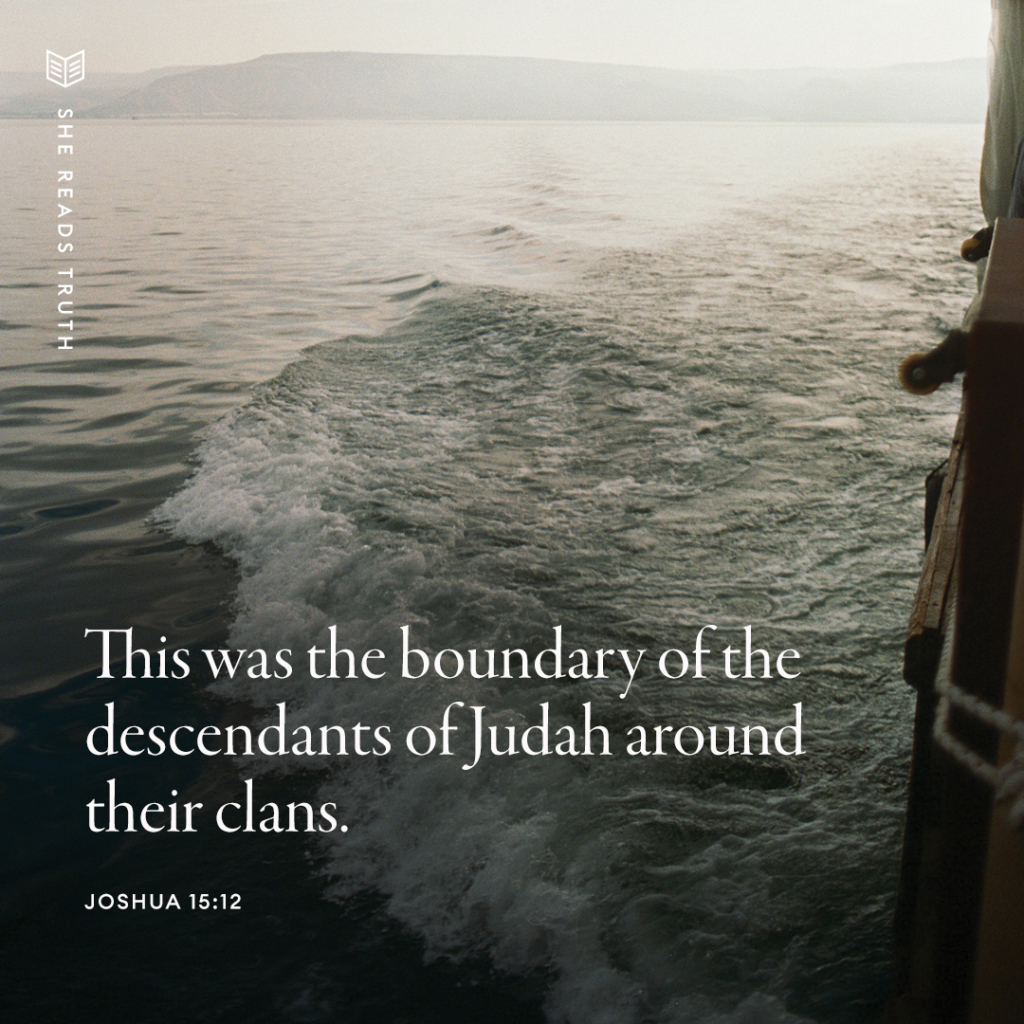Judah’s Inheritance
Open Your Bible
Joshua 15:1-63, Genesis 49:1-27, John 10:7-10
BY Bailey Gillespie
My parents live on three acres in the Northern California foothills, where the land’s boundary lines are hard to see. After a forest of pine trees and a jungle of blackberry bushes, our property comes to a point. You’d never know it since our neighborhood acreage spills out into one messy field of overgrown weeds. There are no fences or stakes. Just a field that dead ends at an old street. Being good friends with our neighbors, we’ve always had permission to trot down there anytime we like, silver pails in hand, to harvest blackberries for homemade ice cream.
In the book of Joshua, boundary lines and land borders are given more importance. Joshua 15 thrusts us right into the heart of land divisions. Caleb had just received his inheritance, and it was time for the tribe of the descendents of Judah to receive theirs (Joshua 15:1). Unless you’re the type of person who loves reading detailed lists of ancient real estate, it can be tempting to just skim the rest of the chapter. But stick with me.
First, we’re told about the many twists and turns of the southern border until it hit the Mediterranean Sea (Joshua 15:2–4). After moving past the eastern border in a sentence, we get a detailed description of the northern border that was three times as long as the southern (vv.5–11). After that, we hear about the inhabitants Caleb drove out of their homeland so Judah’s descendents could take up residence (vv.14–15), as well as comprehensive lists of cities Judah inherited by clan: twenty-nine outermost cities, thirty-nine in the Judean foothills, thirty-eight in the hill country, and six in the wilderness (vv.21–62).
Whew! That’s a lot of people, cities, and borders. Personally, I think it’s easy to want to skip ahead to “the good parts” or take a detour to a familiar psalm. But the text begs another question: Why does this matter for us? You see, to Judah, this was the good part. When we read the statement “this was the boundary of the descendants of Judah around their clans” (Joshua 15:12), we glimpse Judah’s role in redemption history. Because land was an invaluable commodity at the time, this inheritance was tangible evidence of God’s faithfulness and the fulfillment of His promise to them. It was God’s provision. It was their manna.
The same God who was faithful to Judah is faithful to us today. Even though property boundary lines are a little more loosy-goosy in my parents’ neighborhood than they were in the book of Joshua, they still matter. To us, these invisible lines point to the many trees and butterfly bushes that embody God’s provision for our family over the years. How have you seen God provide for you this year? If you’re still waiting to taste His provision, take a moment to praise Him for the ways He’s already taken care of you, and then ask for the patience to see His faithfulness again.

51 thoughts on "Judah’s Inheritance"
-
Thanking God for teaching me to love the Provider more than the Provision this year. I know He alone has sustained me. And eventually He will provide — but first, His love and grace has been wrapped in perpetual nos, not yets, and more closed doors than I can count.
-
“The same God who was faithful to Judah is faithful to us today.” ❤️



Post Comments (51)